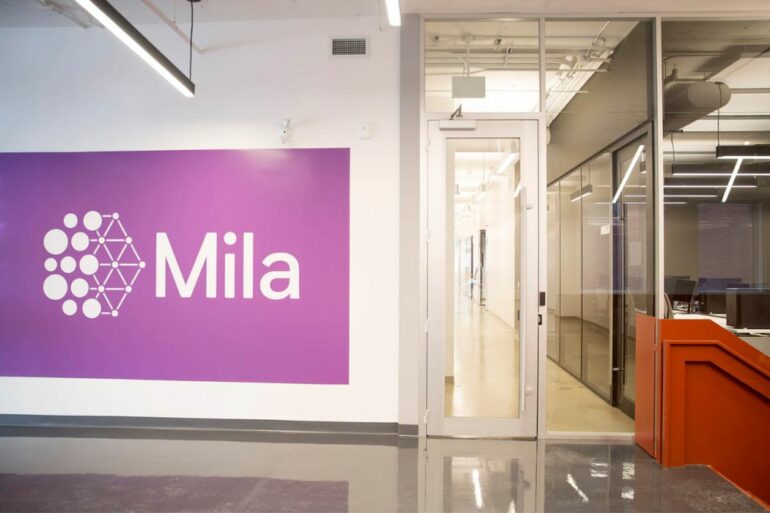Toronto-based BenchSci has teamed up with Montréal’s artificial intelligence (AI) research centre Mila to build AI systems that can automatically create new scientific hypotheses and forecast the outcome of drug-related tests before they are conducted.
BenchSci and Mila say this work could mark “a major step” on the path to autonomous drug discovery.
Together, the two organizations hope to develop AI models capable of biological inference, or the ability to generate hypotheses and predictions for the outcomes of experiments during the drug discovery process. They are also targeting experimental assay prediction—which they say would mark “a major step” on the path to autonomous drug discovery. Experimental assay prediction forecasts the outcome of drug-related tests before they are conducted.
BenchSci, which sells AI-powered software for biopharmaceutical research and development (R&D), says it has struck a multi-year partnership with Mila to “push the boundaries of predictive and generative modeling in drug discovery.”
In a statement, BenchSci co-founder and CEO Liran Belenzon argued that this could lay “the groundwork for autonomous labs that accelerate innovation, uncover insights beyond human reach, and bring life-saving medicines to patients faster.”
BenchSci will gain access to Government of Canada-backed Mila’s network of AI experts, which will work alongside the company’s team of machine learning scientists. Their combined research will help BenchSci evolve its generative AI R&D platform with new inference models that build on its existing map of disease biology.
“By joining forces with BenchSci, we’re applying world-class AI research to one of the most complex and impactful challenges of our time—understanding biology at a level that can transform how life-saving medicines are discovered and developed,” Mila executive vice-president Stéphane Létourneau said in a statement.
RELATED: Ex-BenchSci exec joins Terminal as COO
Founded in 2015, BenchSci aims to use AI to better understand disease biology for drug discovery. Its software acts as an AI R&D assistant for preclinical organizations. BenchSci says it caters to 16 of the top 20 pharma firms—from AbbVie to Gilead Sciences, Merck, Novartis, Novo Nordisk, and Sanofi—and more than 4,500 research centres globally.
BenchSci has raised $218 million to fuel its efforts from a group of investors that includes Al Gore’s Generation Investment Management, Inovia Capital, TCV, F-Prime, Gradient Ventures (Google’s AI fund), and Golden Ventures.
This Mila collaboration follows recent partnerships BenchSci secured with pharma giants Sanofi and Thermo Fisher Scientific.
Generative AI has also impacted BenchSci’s internal operations. As Belenzon wrote in a blog post this July, BenchSci shifted to an “AI-first” strategy in 2025. Similar to Canadian tech peers like Shopify and Klue, Belenzon wrote that BenchSci is now asking whether or not AI can do a job before it hires new employees.
RELATED: Klue lays off 40 percent of staff as startup navigates shifting AI landscape
Since BenchSci’s $95-million Series D in mid-2023, the company has cut down the size of its team, shedding 70 employees (then 17 percent of staff) in early 2024. It cut another 83 employees (23 percent of its overall workforce at the time) in 2025 in layoffs that were first reported by The Globe and Mail, since confirmed by BetaKit, as the company has adopted AI to slash costs.
LinkedIn Insights indicates that BenchSci’s headcount has fallen 35 percent over the past two years, to 292 today. This year, BenchSci has also made some changes to its leadership team. The company announced John Jackson as CTO and Peter Grandsard as fractional senior vice-president of strategy, while COO Eran Ben-Ari and director of product Nim Fox have left.
Feature image courtesy Mila.


